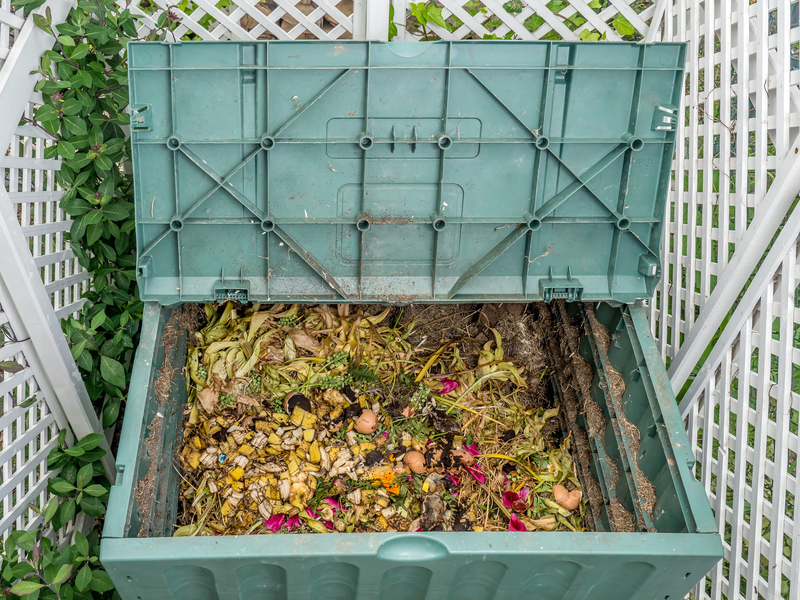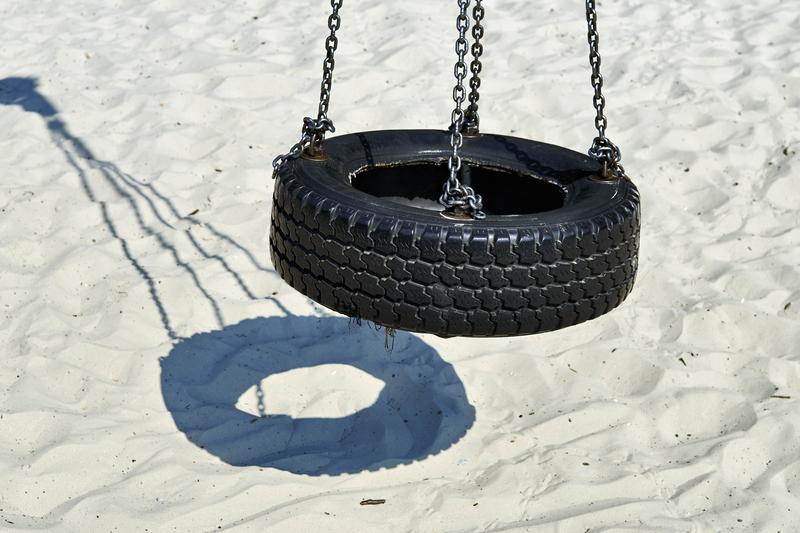The Benefits of Composting: A Guide to Understanding the Process
Posted on 06/09/2024
Composting is the process of breaking down organic materials such as kitchen scraps, yard waste, and other biodegradable materials into nutrient-rich soil. This natural process has been used for centuries by gardeners and farmers to improve soil health and increase crop yields. However, with increasing concerns about climate change and environmental sustainability, composting has gained even more attention in recent years. In this article, we will explore the benefits of composting and provide a comprehensive guide to understanding the process.
Understanding Composting
Before delving into the benefits of composting, it is important to understand the process itself. Composting is a microbial-driven process that occurs when organic materials are broken down by microorganisms such as bacteria, fungi, and worms. These microorganisms require oxygen, moisture, and the right balance of carbon and nitrogen to thrive.
The composting process can take anywhere from a few weeks to several years depending on various factors such as temperature, moisture level, and the types of materials being composted. During this time, the microorganisms work to break down the organic materials into humus - a dark, crumbly material that is rich in nutrients.

The Benefits of Composting
There are numerous benefits to composting both for individuals and the environment. Here are just a few:
1. Improves Soil Health
Compost acts as a natural fertilizer for plants by providing essential nutrients such as nitrogen, phosphorus, and potassium. It also improves soil structure and increases its ability to hold water, making it more resilient during times of drought.
2. Reduces Landfill Waste
Organic waste makes up about 30% of all solid waste in landfills. By composting these materials instead of sending them to landfills where they release harmful greenhouse gases, we can significantly reduce our carbon footprint.
3. Saves Money
Composting can save you money in several ways. You can use the compost as a natural fertilizer instead of buying chemical fertilizers. It also reduces the amount of garbage you produce, which may result in lower waste disposal fees in some areas.
4. Promotes Biodiversity
Healthy soil is essential for biodiversity, and composting helps to create and maintain healthy soil. By adding compost to your garden, you are providing a home for countless microorganisms, including beneficial bacteria and earthworms, which play a crucial role in maintaining soil health.
How to Compost
Now that you understand the benefits of composting, let's dive into how to start your own compost pile at home:
1. Choose Your Composting Location
Choose a level spot in your yard that receives partial sunlight and has good drainage. Avoid placing your compost pile near trees or structures as their roots can interfere with the pile's oxygen flow.
2. Gather Materials
To ensure a healthy balance of carbon and nitrogen in your compost, mix equal parts of brown materials (e.g., dried leaves, twigs) and green materials (e.g., fruit scraps, grass clippings).
3. Layer Your Materials
Start with a layer of brown materials at the bottom, followed by a layer of green materials. Continue alternating layers until the pile reaches at least three feet high.
4. Keep It Aerated
Regularly turn or aerate your compost using a pitchfork or shovel to allow oxygen to reach the microorganisms and speed up the decomposition process.
5. Maintain Moisture Levels
Keep your compost pile moist (but not soaked) at all times, similar to a damp sponge. This will encourage microbial activity and prevent the pile from drying out.
The Pros and Cons of Composting
As with any process, there are always pros and cons to consider. Here are a few to keep in mind:
Pros:
- Improves soil health and increases crop yields
- Reduces landfill waste and greenhouse gas emissions
- Saves money on fertilizer and waste disposal fees
- Promotes biodiversity and supports healthy ecosystems
Cons:
- Requires time, effort, and space to maintain a compost pile
- May attract pests if not properly managed
- Some materials (e.g., meat, dairy) cannot be composted at home
- May produce unpleasant odors if not aerated or maintained properly

Key Takeaways
Composting is a natural process that has numerous benefits for both individuals and the environment. It improves soil health, reduces landfill waste, saves money, and promotes biodiversity. To start your own composting journey, choose a suitable location, gather materials in the right balance of carbon and nitrogen, layer them correctly, keep the pile aerated, and maintain moisture levels.
In Conclusion
In addition to the benefits listed above, composting also fosters a deeper connection with nature as we witness firsthand the transformation of our organic waste into nutrient-rich soil. It is an easy and effective way to reduce our environmental impact and contribute positively to the planet's health. So why not give it a try? With a little time and effort, you will be rewarded with healthier plants, cost savings, and the satisfaction of knowing you are doing your part for a more sustainable future.
Latest Posts
Environmental Harm from Poor Waste Practices

 020 3744 5548
020 3744 5548










